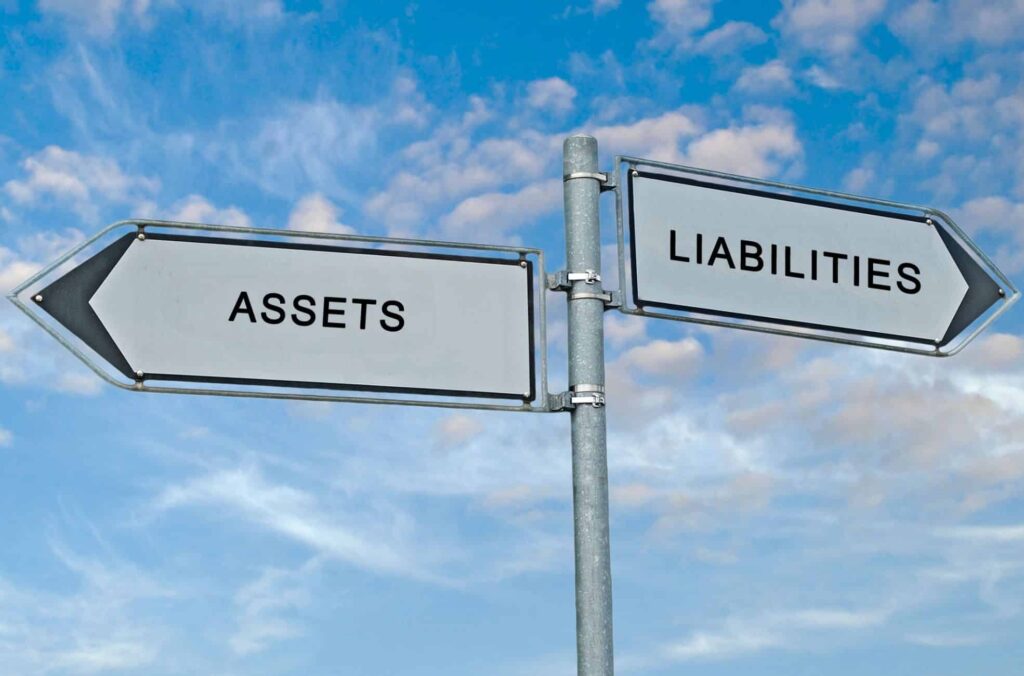
Financial success often depends on understanding the distinction between assets and liabilities. Assets are resources that generate value, while liabilities are obligations that drain resources. However, as Robert Kiyosaki highlights, not all possessions typically considered assets, such as a home you live in, truly qualify as asset from a financial perspective. In this article, we will break down assets and liabilities, their impact on financial health, and how to make smarter investment choices.
What Are Assets?
Assets are resources owned by individuals or businesses that provide economic benefits. These can either generate income or increase in value over time. Assets are classified into:
- Tangible Assets
These include physical items like:- Real estate (rental properties, land)
- Vehicles (used for business or investment)
- Equipment and machinery
- Intangible Asset
Non-physical items such as:- Intellectual property (patents, trademarks)
- Stocks, bonds, and mutual funds
- Digital assets like cryptocurrencies
- Income-Generating Assets
Investments that produce cash flow or appreciate in value:- Dividend-paying stocks
- Rental properties
- Businesses
What Are Liabilities?
Liabilities represent financial obligations that reduce net worth. They are categorized as:
- Short-Term Liabilities
Debts payable within a year:- Credit card debt
- Utility bills
- Short-term loans
- Long-Term Liabilities
Debts extending beyond one year:- Mortgages
- Car loans
- Student loans

The Debate: Is Your Home an Asset?
According to Rich Dad Poor Dad author, Robert Kiyosaki, a home used as a primary residence is not an asset because it doesn’t generate income. Instead, it incurs costs such as mortgage payments, property taxes, maintenance, and utilities. While it may appreciate in value, these expenses make it more of a liability until it is sold for a profit or generates rental income.
The Role of Financial Literacy in Building Assets
To truly build wealth, focus on acquiring assets that:
- Generate passive income
- Appreciate over time
- Provide financial leverage (e.g., borrowing against appreciating investments)
For example, investing in rental properties or dividend-paying stocks can enhance your financial portfolio while offsetting liabilities.
How to Manage Liabilities Effectively
- Prioritize High-Interest Debts
Focus on clearing debts with high-interest rates to reduce financial strain. - Consolidate Loans
Combine multiple debts into a single payment with lower interest. - Avoid Excessive Borrowing
Only take on liabilities that can be offset by income-generating asset.
Building Wealth: Practical Steps
- Start Small
Begin with affordable, income-generating investments such as exchange-traded funds (ETFs). - Leverage Technology
Use financial tools and apps to track your assets and liabilities. - Continuous Learning
Stay informed through financial education resources to make informed investment decisions.
Key Takeaways
- Asset add value and contribute to wealth accumulation, while liabilities drain resources.
- Not all properties, including your primary residence, qualify as asset unless they generate income or appreciate significantly.
- Smart investment strategies and effective liability management are essential for financial freedom.
By understanding and applying these principles, you can take control of your financial future and build lasting wealth.
Also Read: What is Financial Freedom?
FAQs
What is the difference between assets and liabilities?
Assets are resources owned that generate income or appreciate in value, increasing net worth. Liabilities are obligations or debts owed, which reduce net worth.
Can a home be considered an asset?
It depends. A home used as a primary residence typically incurs expenses, making it a liability in financial terms. However, if the home generates rental income or appreciates significantly, it can be considered an asset.
What are examples of income-generating assets?
- Rental properties
- Dividend-paying stocks
- Mutual funds
- Businesses
- Intellectual property like patents and trademarks
What are the types of liabilities?
Liabilities can be classified as:
- Short-term liabilities: Payable within a year, e.g., credit card debt, utility bills
- Long-term liabilities: Extend beyond one year, e.g., mortgages, student loans
Why is financial literacy important for managing assets and liabilities?
Financial literacy helps individuals understand the impact of asset and liabilities on wealth building, enabling smarter investment and debt management decisions.
How can I reduce my liabilities?
- Prioritize paying off high-interest debts
- Consolidate loans for lower interest rates
- Avoid excessive borrowing
What tools can help track assets and liabilities?
Financial management apps like Mint, YNAB, and Personal Capital can help monitor your asset, liabilities, and net worth.
How do assets contribute to wealth accumulation?
Assets generate income, appreciate in value, or provide leverage for further investments, enhancing financial stability and wealth.
Are all investments considered assets?
Not necessarily. Some investments, like speculative stocks, might not generate steady income or appreciate consistently, making them risky and less asset-like.
What steps should I take to balance assets and liabilities?
- Focus on acquiring income-generating asset
- Regularly assess and reduce liabilities
- Maintain an emergency fund to cover short-term liabilities





